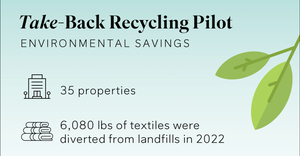April 1, 1994
Federal agencies can no longer force state and local governments to meet federal requirements without federal dollars, according to an executive order that President Clinton signed on October 26.
The order prohibits the Environmental Protection Agency and other federal agencies from issuing rules that create mandates without any financial assistance.
However, the order does provide a loophole for agencies that can convince the White House Office of Management and Budget (OMB) that special circumstances exist for any given rule. To wiggle out of the restriction, the agency must prove to OMB that the agency has met with representatives of affected state, local and tribal governments, must describe the nature of the state, local or tribal concerns and must fully explain why the rule with a mandate is necessary.
Moreover, the order directs each federal agency to examine its waiver application procedures and to unsnarl that process.
But local governments encounter more than financial problems while trying to meet environmental mandates, according to an EPA report released last August. Communities also experience poor communication, vague or shifting requirements and an overall uncooperative EPA attitude.
EPA officials say that they desire a more open relationship with state and local governments who, in turn, might then begin to feel the same way. In fact, the President signed an executive order last September requiring agencies to seek out views of state, local and tribal officials, "where feasible," before imposing regulations on governmental units.
Local government officials have told EPA repeatedly that soaring federal mandates and dwindling federal dollars force communities simply to reallocate resources instead of searching for new revenue. In 1981, localities paid three-fourths of the cost of meeting federal mandates and received almost 20 percent from Washington. By the year 2000, EPA estimates that local funding will approach 90 percent while federal revenue will shrink to less than 10 percent.
Last fall, the U.S. Conference of Mayors and the National Association of Counties jointly released a report that tallied the burden of federal mandates on local governments. According to the groups' survey, 314 cities and 128 counties across the country spend more than $11 billion to keep up with federal requirements. These costs are expected to climb to nearly $90 billion by 1998.
For the cities surveyed by the Conference of Mayors, the most costly mandates in 1993 were the Clean Water Act ($3.6 billion), solid waste disposal ($900 million) and the Safe Drinking Water Act ($600 million).
The local government groups stressed their support for the objectives of most environmental laws, but fretted over paying the bills. "It is a question of who is going to pick up the tab," said Jerry Abramson, mayor of Louisville, Ky.
Not surprisingly, environmental groups are worried about EPA's ability to write new rules. These organizations say they would be pleased if the policy produces more money for local governments. But, according to a spokesman for the Natural Resources Defense Council, the groups fear its potential "to dismantle . . . environmental laws."
While acknowledging the trickle of federal funds to state and local governments for carrying out federal mandates, the Environmental Working Group, a Washington, D.C., research organization, decried any solution based on diluting or eliminating federal pollution control standards.
Unfunded federal mandates are targeted by two bills in Congress: H.R. 140 which would excuse state and local governments from complying with federal regulations unless federal money was available; S.993 has similar provisions.
About the Author(s)
You May Also Like




